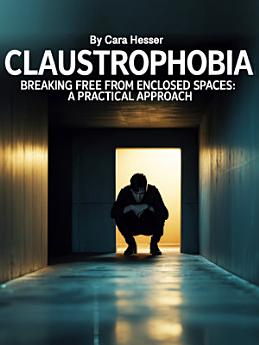Claustrophobia: Breaking Free from Enclosed Spaces - A Practical Approach
About this ebook
At its core, claustrophobia is classified as a specific phobia under the broader category of anxiety disorders. It typically emerges from the fear of being trapped without a clear means of escape. This perceived lack of control triggers the body's fight-or-flight response, releasing adrenaline and prompting intense reactions that may include shortness of breath, rapid heartbeat, sweating, and even dizziness.
The psychology behind claustrophobia often ties into the mind’s response to perceived threats. While many fears are rational and based on actual danger, claustrophobia tends to exaggerate the risk of confined spaces, convincing the individual that harm is imminent—even when it's not. This overestimation of danger stems from the brain’s heightened sensitivity to stress and its tendency to misinterpret signals in enclosed environments.






